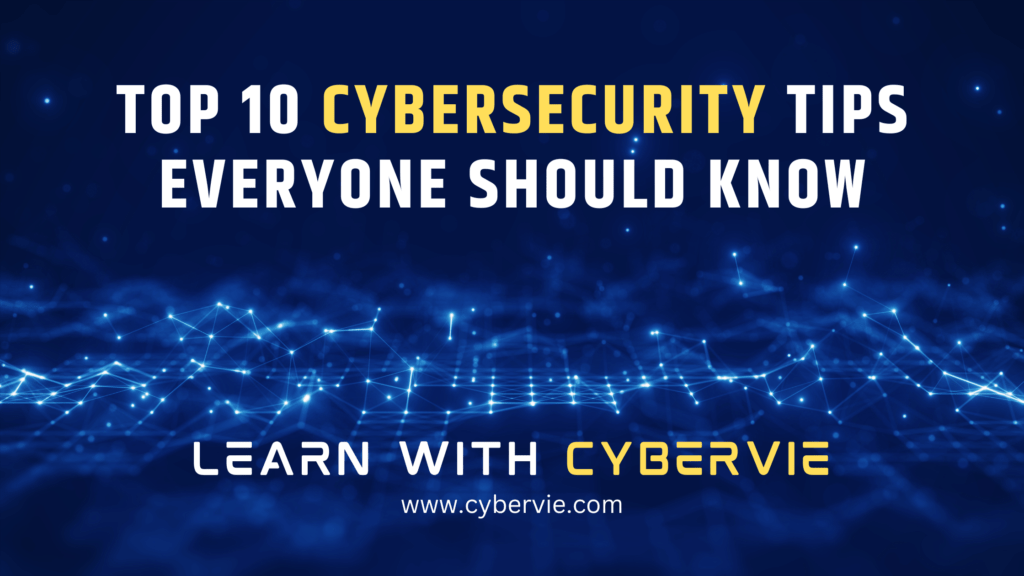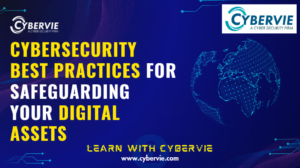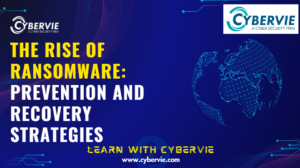10 Essential Cybersecurity Tips for Everyday Internet Users
In the digital age, Cybersecurity is not just a buzzword but a necessity. Everyday Internet users must know the Top 10 Cybersecurity Tips. With cyber threats evolving every day, it’s imperative for everyday internet users to arm themselves with knowledge and tools to protect their online presence. From private individuals to employees within an organization, understanding basic cybersecurity principles can mean the difference between a secure digital life and becoming a victim of cybercrime.
In this article, we’ll explore 10 essential cybersecurity tips that can help you safeguard your information and navigate the digital world more securely. These daily cybersecurity tips are easy to implement and crucial for maintaining online safety.
Understand the Importance of Cybersecurity
Before diving into the tips, let’s take a moment to understand why cybersecurity matters.
“Cybersecurity involves protecting your internet-connected systems, including hardware, software, and data, from cyberattacks. With a large portion of our personal and professional lives taking place online, a breach can lead to identity theft, financial loss, and a compromised reputation.”
Cybersecurity for Everyone
Cybersecurity isn’t just for IT professionals; it’s a responsibility for all internet users. By taking proactive steps to protect your digital assets, you can significantly reduce the risk of cyber threats and their potential impact on your life.
Tip 1: Use Strong, Unique Passwords
One of the simplest yet most effective cybersecurity tips is to use strong, unique passwords for every online account. A strong password is typically long, combines letters, numbers, and symbols, and avoids predictable sequences or common words.
Key components of a strong password
- A mix of upper and lower case letters
- Numbers
- Special characters
Example: P@ssw0rd!23
Password Managers
Consider using a password manager to generate and store complex passwords. This tool can help you maintain a unique password for each account without the hassle of remembering them all.
Tip 2: Enable Two-Factor Authentication
Two-factor authentication adds an extra layer of security by requiring two forms of verification:
- Something you know (your password)
- Something you have (a code sent to your phone)
Enabling 2FA can significantly reduce the risk of unauthorized access to your accounts.
2FA for Enhanced Security
Whenever possible, enable 2FA on your accounts, especially those containing sensitive information. This can prevent unauthorized access even if your password is compromised.
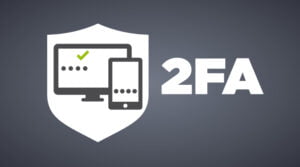
Tip 3: Keep Software and Systems Updated
Cybercriminals often exploit vulnerabilities in outdated software. Regularly updating your operating systems, applications, and antivirus software can close security gaps and protect you from the latest threats.
Tips:
- Enable automatic updates whenever possible.
- Regularly check for updates manually if automatic updates are not available.
Automated Updates
Turn on automatic updates where available to ensure you’re always running the most secure versions of your software.
Tip 4: Be Wary of Phishing Attempts
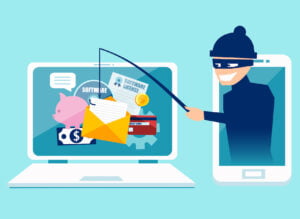
Phishing is a deceptive practice where cybercriminals attempt to obtain sensitive information by masquerading as a trustworthy entity in electronic communications. To avoid falling victim:
- Never click on suspicious links or download attachments from unknown sources.
- Verify the sender’s email address.
- Look for signs of phishing, such as spelling errors and urgent language.
Recognizing Phishing Emails
Learn to recognize the signs of phishing emails, such as urgent requests for information, unexpected attachments, or links to unfamiliar websites. Always verify the sender’s identity before responding or clicking on any links.
Tip 5: Secure Your Wi-Fi Network
Unsecured Wi-Fi networks are an easy target for cybercriminals. Ensure your home network is secure by setting a strong Wi-Fi password and enabling network encryption. Secure your network by:
- Using a strong password for your Wi-Fi.
- Enabling WPA3 encryption.
- Hiding your network SSID if possible.
Public Wi-Fi Precautions
Avoid using public Wi-Fi for sensitive transactions, and consider using a virtual private network (VPN) to encrypt your internet connection when accessing public networks.
Tip 6: Backup Your Data Regularly
Regularly backing up your data can minimize the damage from cyberattacks, such as ransomware, where your files are held hostage until a ransom is paid. Store backups:
- On an external hard drive
- In the cloud
Data Backup Solutions
Use cloud services or external drives to keep copies of important files. Ensure your backup routine is consistent and test your backups periodically to confirm that your data can be recovered if needed.
Tip 7: Monitor Your Online Presence
Keep an eye on your online accounts and personal information. Regularly check your bank statements, credit reports, and social media settings to catch any suspicious activity early.
Be cautious about the personal information you share online. Oversharing can provide cybercriminals with the data they need to impersonate you or guess your security questions.
Tip 8: Educate Yourself and Others
Staying informed about the latest cybersecurity threats and best practices is crucial. Share your knowledge with friends, family, and colleagues to create a community of informed internet users. Stay informed by:
- Following reputable cybersecurity blogs and news sources.
- Participating in cybersecurity awareness training.
- Joining online cybersecurity communities.
Cybersecurity Training for Employees
Organizations should provide regular cybersecurity training for their employees. This not only protects the company’s assets but also empowers employees to practice safe online behaviors in their personal lives.
Tip 9: Use Antivirus and Anti-Malware Software
Invest in reputable antivirus and anti-malware software to provide real-time protection against a multitude of threats. These programs can detect and remove malicious software before it can do any harm.
Run regular scans and keep your antivirus definitions up to date to catch the latest malware strains.
Tip 10: Practice Safe Browsing Habits
Adopt safe browsing habits to reduce your exposure to cyber threats. Be selective about the websites you visit and downloads you initiate, and avoid clicking on suspicious ads or pop-ups.
Secure Websites Only
Look for “https://” in the website’s URL to ensure that the site uses encryption. This is particularly important when entering personal or financial information online.
**EXTRA TIP: Manage Social Media Privacy Settings

Social media platforms can expose personal information to cybercriminals. To protect your privacy:
- Review and adjust your privacy settings regularly.
- Limit the amount of personal information you share.
- Be cautious about accepting friend requests from unknown individuals.
Ready to take your Cybersecurity skills to the next level?
Join our CSEP – Advanced Training Program and become a leader in AI-powered cybersecurity.
Click Here to Enroll CSEP Advanced Training Program
Conclusion: Your Role in Cybersecurity
Cybersecurity is a shared responsibility. By following these 10 essential cybersecurity tips, you’ll be better equipped to protect yourself and your data from the growing number of cyber threats. Remember, the best defense is a proactive approach that combines knowledge, vigilance, and the right tools.
Additional Resources
For further reading and tools to enhance your cybersecurity knowledge, consider the following resources:
- Cybersecurity & Infrastructure Security Agency (CISA)
- National Cyber Security Centre (NCSC)
- Stay Safe Online
By integrating these practices into your daily routine, you can safeguard your digital life against the ever-present threat of cyberattacks.
“Stay safe online and make cybersecurity a daily practice. Your digital well being depends on it”
For More Related Blog Contents – Click Here

